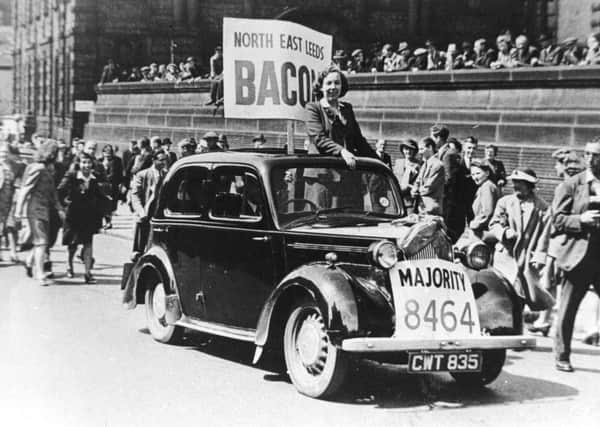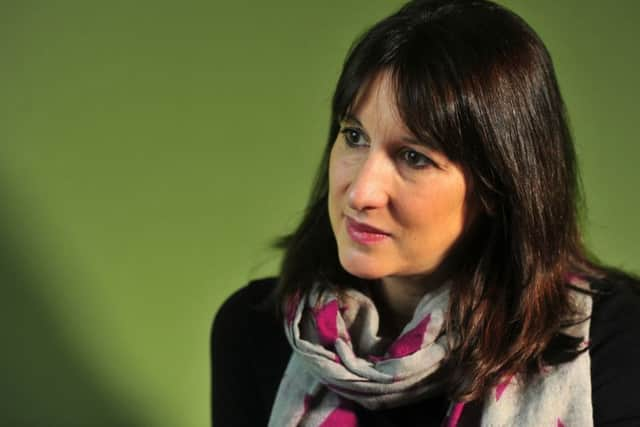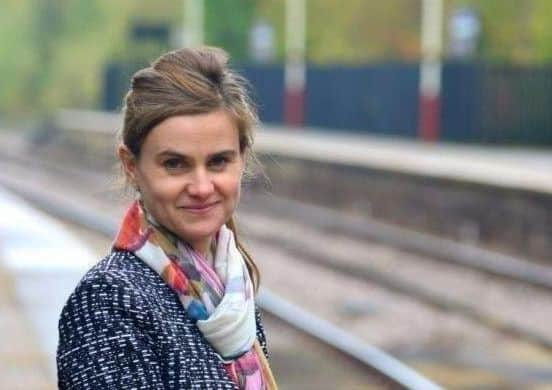Rachel Reeves: How the women of Westminster are showing the way forward 100 years after election of first female MP


We have come a long way since Nancy Astor was the sole woman in Parliament. Today, 208 of the 650 MPs are women. That’s progress, but nowhere near the 50:50 balance we need to reflect the people we serve.
When Alice Bacon was elected as the MP for Leeds North East in 1945 as Yorkshire’s first woman MP, the man she beat told her to enjoy her short stay in Parliament. In fact, she was there for 25 years and is still Yorkshire’s longest-serving woman MP.
Advertisement
Hide AdAdvertisement
Hide AdBorn almost a decade before women got the vote, coal miner’s daughter Alice from Normanton became a Minister under Harold Wilson and helped bring in reforms including comprehensive education and the abolition of the death penalty.


Since Alice’s time, Yorkshire has sent 37 women to Parliament including Shirley Summerskill who was Labour MP for Halifax from 1964 to 1983 and Elizabeth Peacock, the Conservative MP for Batley and Spen from 1983 to 1997.
We might also want to lay claim to Barbara Castle, born and brought up in Bradford, and Parliament’s first woman Speaker Betty Boothroyd who hails from Dewsbury.
Advertisement
Hide AdAdvertisement
Hide AdToday, 38 per cent of our region’s 52 MPs are women – the highest level ever.


But Yorkshire’s tradition of fighting for women’s rights goes back to the suffrage days – with Leonora Cohen, Mary Gawthorpe and Isabella Ford campaigning for votes for women in the suffragette years.
The work of those women and many others will be celebrated on International Women’s Day next Friday. In Leeds, speakers will join residents at 10 community centres, while Women’s Lives Leeds will launch their State of Women’s Health report – the first report of its kind.
I’ve been researching the history of some incredible women for my new book Women of Westminster: The MPs Who Changed Politics.
Advertisement
Hide AdAdvertisement
Hide AdFrom everything I have looked at, there is no doubt that having more women in Parliament has transformed politics.
Reforms have included widows’ pensions, family allowances, child benefit, equal pay and tougher penalties for domestic violence to name only a few milestones. But women have done more than that. More women in Parliament have changed the way we actually do politics.
Shirley Summerskill helped steer through the landmark Sex Discrimination Act which introduced a woman’s right to equal pay and equal status in the workplace.
Yet Shirley recounted an occasion when she bumped into a fellow MP who stroked her hair as he spoke to her. When she asked him to stop, he said it was a gesture of friendship. “Do you stroke Harold Wilson’s hair?” asked Shirley as she rebuffed him.
Advertisement
Hide AdAdvertisement
Hide AdElizabeth Peacock was one of just a handful of women in the Thatcher government, but was also a fiercely independent advocate for Batley and Spen. She refused to toe the party line during the 1980s miners’ strikes and voted against the Government, losing her job as a result.
Ann Cryer, who represented Keighley for Labour, was one of the first people to raise the issues of forced marriages and honour killings – a brave stance at a time when people thought it was a problem that was too difficult to talk about, let alone act upon.
Sarah Champion in Rotherham, and Naz Shah in Bradford West, have continued in Cryer’s tradition by standing up for abused women and children.
Yvette Cooper, who has represented her Yorkshire seat since 1997, told me her proudest achievement was introducing Sure Start children’s centres. Cooper was also key in ensuring Gordon Brown’s tax credits were paid directly to the main carer not the main earner to ensure the money got to the children.
Advertisement
Hide AdAdvertisement
Hide AdIn this battle, Cooper followed MPs Eleanor Rathbone, who first campaigned for family allowances and Barbara Castle who introduced child benefit.
Women MPs are responsible for so many reforms that have improved family life. But as well as the new laws, women have changed the way politics is conducted.
My friend Jo Cox said that “we have more in common and are much more united than that which divides us”. Her words embodied the way Jo approached politics, finding partners and building friendships across the political spectrum. She worked with Tory MPs Andrew Mitchell and Seema Kennedy on issues ranging from protecting civilians in Syria to tackling loneliness at home.
This tradition of working across parties is something familiar to women MPs. From Nancy Astor and Margaret Wintringham (a Tory and Liberal) working together to ensure women had rights over their children in the case of divorce to the Duchess of Atholl, Eleanor Rathbone and Ellen Wilkinson (a Tory, Independent and Labour) working together to highlight the tragedy unfolding in the Spanish Civil War to Seema Kennedy and Jo Cox joining forces to tackle the hidden epidemic of loneliness, women MPs have a long and proud tradition of building alliances to drive change.
Advertisement
Hide AdAdvertisement
Hide AdRight now in politics, we desperately need more cross-party working. Yes, certainly on Brexit – but also on devolution, improving our public services and ensuring fewer people are living in poverty.
At a time when public trust in politics is ebbing away, the stories I tell in Women of Westminster might help convince you there is a noble cause in politics and that when we try to find the common good, we can deliver change that can improve lives by working together.#
Rachel Reeves is the MP for Leeds West and author of ‘Women of Westminster: The MPs Who Changed Politics’, published on Friday 8th March by Bloomsbury.